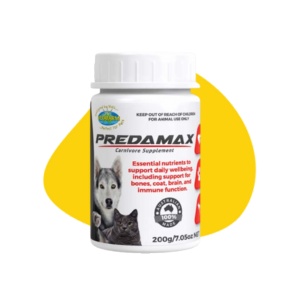A simple recipe to make up 10kg of ferret food.
As an alternative to feeding whole prey, a raw mix can be made by combining 10% bone, 10% organ, and 80% muscle meat, as below.
A simple recipe to make up 10kg of ferret food.
As an alternative to feeding whole prey, a raw mix can be made by combining 10% bone, 10% organ, and 80% muscle meat, as below.

Cooked bones should never be fed, as they can splinter and cause injury to your ferret’s mouth, stomach, or gastro-intestinal tract. Raw chicken necks and wing tips are usually popular with ferrets and are of an appropriate size – anything smaller may present a choking hazard. Some ferrets will not want to eat bones at all, and in these cases the feeding of minced carcass is recommended. Minced carcass will not be as beneficial for your ferrets’ teeth, but it will provide them with much needed calcium.
Feeding liver as 5% of the diet is recommended, to ensure your ferret receives adequate Vitamin A and Vitamin E. Kidney can make up the other 5%, to bring the total amount of organ offered to 10%. If kidney is not preferable, this can be replaced with either brain, pancreas, spleen, or testicles.



Ideally 20% of your ferret’s diet should be heart, to provide your ferret with much needed taurine. As heart is a muscle, this will make up one quarter of the 80% of muscle meat required. The remaining three quarters can be made up of a combination of three or more other animal proteins, such as chicken, lamb, beef, kangaroo, horse, goat, rabbit, duck, or turkey. It is preferable to provide meat in the form of chunks rather than mince, as the more your ferret must chew their food, the better it is for their teeth. Minced meat can also be quite devoid of nutrients.
Thoroughly mix all ingredients together and then divide into batches, with each batch containing one or two meals. These batches can then be placed into small plastic containers, or Ziploc bags, and frozen. Defrost each batch 24 hours before feeding.
As a general guide, your ferret can be fed 7-10% of their body weight in raw mix over 24 hours, divided into 2-4 meals. If feeding in conjunction with ad lib kibble, then your ferret will require less of their raw mix. Always monitor your ferrets body condition, and if your ferret is under or overweight, then adjust their portion sizes accordingly. If in doubt, ask your vet!




To ensure that your ferret’s diet is nutritionally balanced, consider adding in Predamax. Predamax is a supplement for carnivores which is designed to provide the essential calcium, vitamins and minerals to support your ferret’s health and wellbeing.
Eggs yolks can be a healthy snack for your ferret, if fed in appropriate amounts. As a general rule, feed no more than 2 egg yolks per ferret, per week.